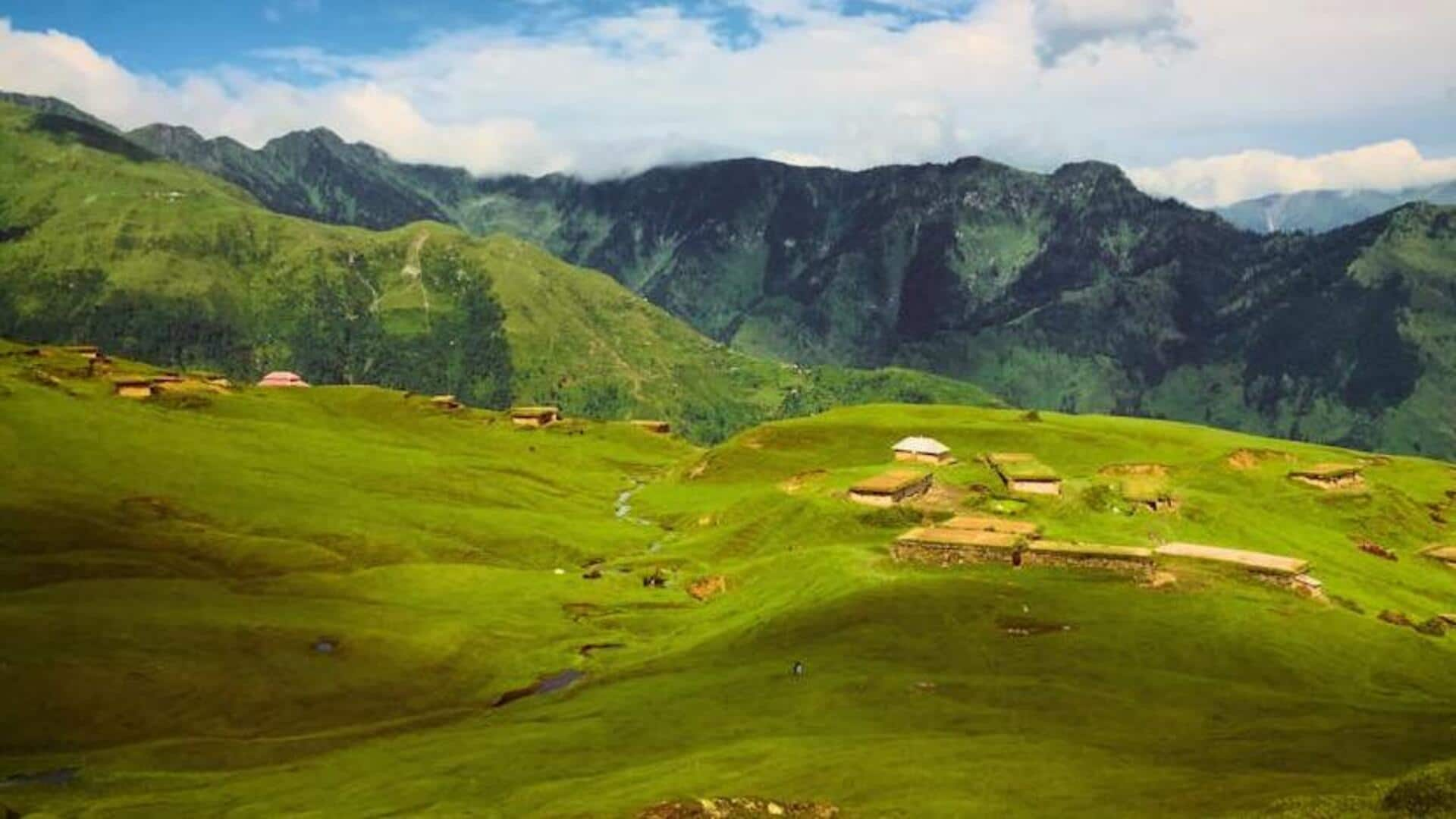
Unveiling Kashmir's silk and saffron secrets
What's the story
Kashmir, nestled in the northern part of India, is not just about breathtaking landscapes and serene lakes.
It's a region steeped in history, particularly famous for its ancient silk workshop towns and lush saffron fields.
This guide takes you through the heart of Kashmir's heritage, where traditional crafts meet aromatic agriculture, offering a unique journey into the cultural fabric of this enchanting land.
Silk heritage
Step back in time at Silk Towns
Kashmir's silk towns, notably Srinagar, showcase the ancient tradition of silk weaving.
Artisans in these towns create intricate silk designs, a craft handed down through generations.
Visitors can observe the entire process from cocoon to loom, gaining insight into the detailed effort behind each piece of fabric.
Moreover, these towns offer opportunities to purchase authentic silk products directly from the artisans themselves.
Saffron bloom
Wander through saffron fields
In October and November, Kashmir transforms into a sea of purple as saffron flowers bloom.
The Pampore region, especially, becomes famous for its extensive saffron fields.
Walking through these fields in the early mornings offers surreal experiences, with mesmerizing views and aromatic air.
It's an excellent opportunity to learn about saffron cultivation from local farmers, who have been involved in this trade for centuries.
Market Days
Explore traditional markets
No visit to Kashmir is complete without exploring its vibrant markets.
Towns like Srinagar are dotted with bustling bazaars that sell everything from handwoven silk carpets to freshly harvested saffron strands.
These markets are not just shopping destinations but cultural hubs. Here, you can interact with locals, understand their way of life, and collect unique souvenirs.
These items embody the spirit of Kashmir.
Craft Encounters
Engage with local artisans
Direct engagement with artisans in Kashmir's silk towns deepens understanding of their heritage.
Many workshops invite visitors to observe and participate in silk weaving, under expert guidance.
This interaction not only bolsters local craftsmanship but also enriches the travel experience. It fosters a deeper connection with Kashmir's cultural legacy.
It's a distinctive opportunity for travelers seeking authenticity in their journey through India's historic regions.